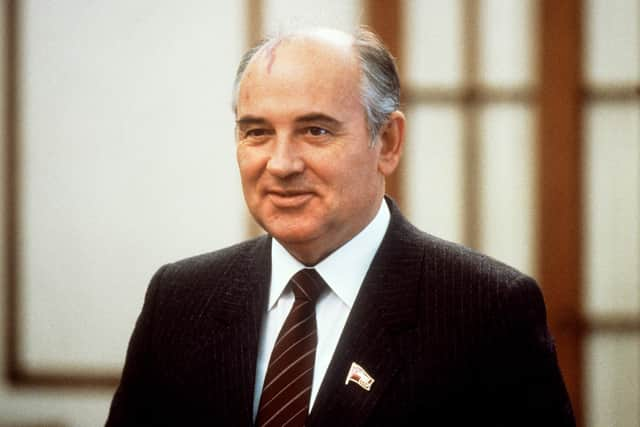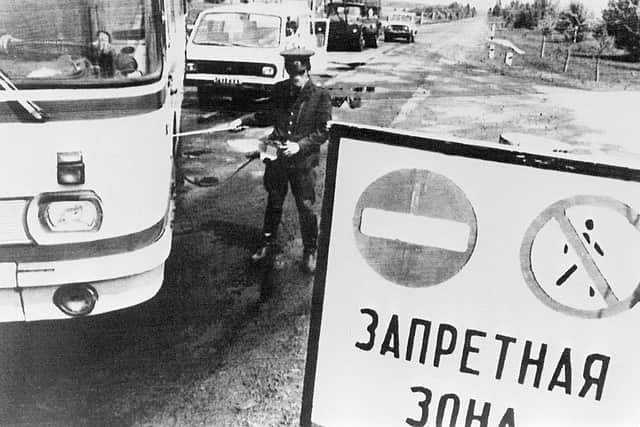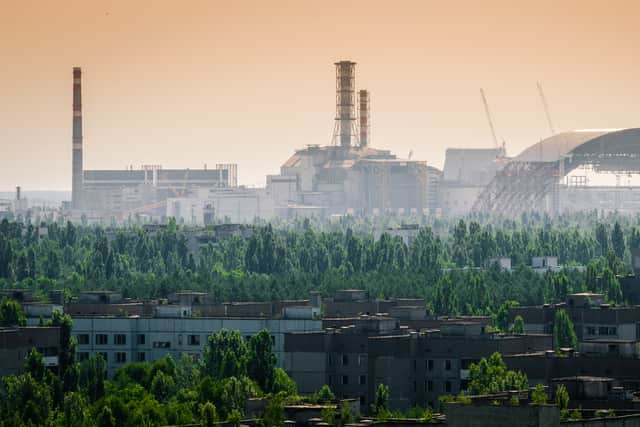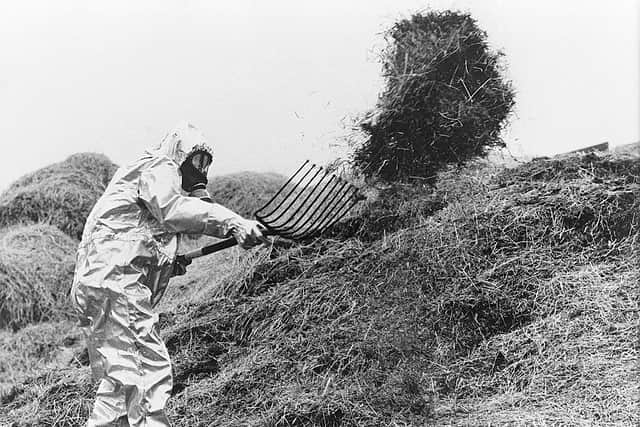Mikhail Gorbachev: what did former Soviet Union leader say about Chernobyl Disaster and the fall of the USSR?
and live on Freeview channel 276
Former President and last leader of the Soviet Union, Mikhail Gorbachev died last night at the age of 91, after a severe and prolonged illness.
He established himself as a revolutionary figure, who supervised a significant transformation by ending the USSR and steering the country toward social democracy.
Advertisement
Hide AdAdvertisement
Hide AdHe was awarded a Nobel Peace Prize in 1990 for his accomplishments in international relations.
In particular, one notable event he will be remembered for was how he spoke about the Chernobyl nuclear disaster in 1986.


What Mikhail Gorbachev say about the 1986 Chernobyl disaster
Gorbachev’s era began in 1985, as the General Secretary of the Communist Party of the Soviet Union, and ended in 1991, with Gorbachev being the first and last President of the Soviet Union.
As the Chernobyl disaster occurred in 26 April 1986, eyes were on Gorbachev on how he would deal with a catastrophic incident as leader of the USSR.
Advertisement
Hide AdAdvertisement
Hide AdIt took Gorbachev almost three weeks to address the nation of the disaster, and 20 years later said it had been Chernobyl that was “perhaps the real cause of the collapse of the Soviet Union.”


According to reports, in the immediate aftermath officials told Gorbachev incorrect information to downplay the incident, and several days after its occurrence, Gorbachev gave a televised report to the nation.
Years later, he described the incident as one which made him appreciate the scale of incompetence and cover-ups in the Soviet Union and cited the disaster as evidence of what he regarded as widespread problems in Soviet society.


What happened at Chernobyl?
The Chernobyl disaster was a nuclear accident which happened on 26 April 1986, at the Number 4 reactor in the Chernobyl Nuclear Power Plant near Pripyat, in what is now northern Ukraine.
Advertisement
Hide AdAdvertisement
Hide AdThe accident during a safety test led to a steam explosion, and fires released at least 5% of the radioactive reactor core, with radioactive materials landing in many parts of Europe.
Two Chernobyl plant workers died due to the explosion on the night of the accident, and a further 28 people died within a few weeks as a result of acute radiation syndrome.
Some 350,000 people were evacuated as a result of the accident.


What did Gorbachev say of the Chernobyl disaster years after the event?
In April 2006, Gorbachev wrote: “The nuclear meltdown at Chernobyl 20 years ago this month, even more than my launch of perestroika, was perhaps the real cause of the collapse of the Soviet Union.”
Advertisement
Hide AdAdvertisement
Hide AdGorbachev went on to address how he had little information provided to him regarding the immediate fallout, stating they had “no information for a day and a half.”
And speaking of the collapse of the Soviet Union he said: “The Chernobyl disaster, more than anything else, opened the possibility of much greater freedom of expression, to the point that the system as we knew it could no longer continue.
“It made absolutely clear how important it was to continue the policy of glasnost, and I must say that I started to think about time in terms of pre-Chernobyl and post-Chernobyl.”
According to Gorbachev, the Soviet Union spent 188billion rubles - the equivalent to £125bn at the time - on containment and decontamination, which led the empire close to bankruptcy.
Comment Guidelines
National World encourages reader discussion on our stories. User feedback, insights and back-and-forth exchanges add a rich layer of context to reporting. Please review our Community Guidelines before commenting.
